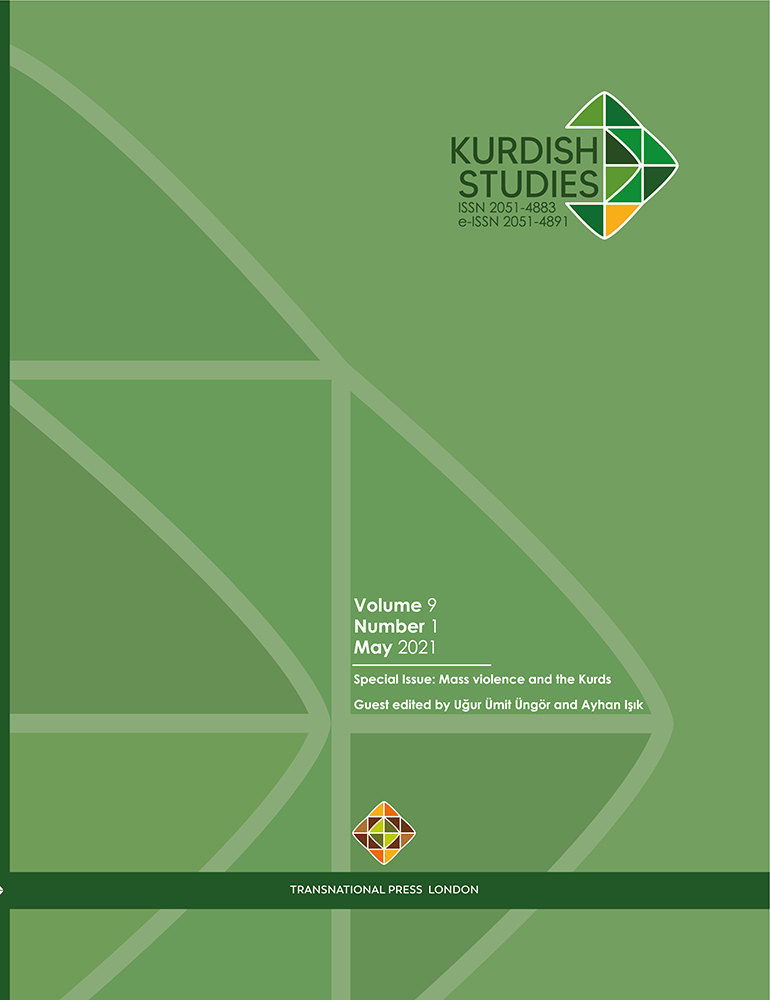The State and Violence in Kurdistan: A Conceptual Framework
The State and Violence in Kurdistan: A Conceptual Framework
Author(s): Naif BezwanSubject(s): Political history, Government/Political systems, Studies in violence and power, Interwar Period (1920 - 1939), Migration Studies, Inter-Ethnic Relations, Ethnic Minorities Studies
Published by: Transnational Press London
Keywords: Colonial violence; Direct rule; Incorporation; Integral colony; Partition; Reordering of the Middle East; State violence;
Summary/Abstract: This article interrogates the use of state-organised violence against the Kurds by focusing on four major cases of mass violence conducted in the early republican era in the 1920s and 1930s. Through the examination of the key processes and major policies, the study explains state violence as historically and causally related to the logic and imperatives of imposing and maintaining direct rule over the predominantly Kurdish-inhabited territories in post-Ottoman Turkey. To better understand the nature of state violence, I present three mutually reinforcing and interconnected conceptual pathways: integral colonisation, incorporation by nation-destruction and colonial violence. The paper argues that the strategies of state formation and expansion into Kurdistan along with the coercive policies of creating a unitary and homogenous Turkish nation took the form of integral colonisation. This process, while laying the foundations for the politics of incorporation by nation-destruction, co-existed with and informed by the use of colonial violence. Disaggregated into ideological, ethnocidal and genocidal violence, colonial violence is thus referred to as underlying mechanism behind the recurrent use of state violence in Kurdistan.
Journal: Kurdish Studies
- Issue Year: 9/2021
- Issue No: 1
- Page Range: 11-36
- Page Count: 26
- Language: English

